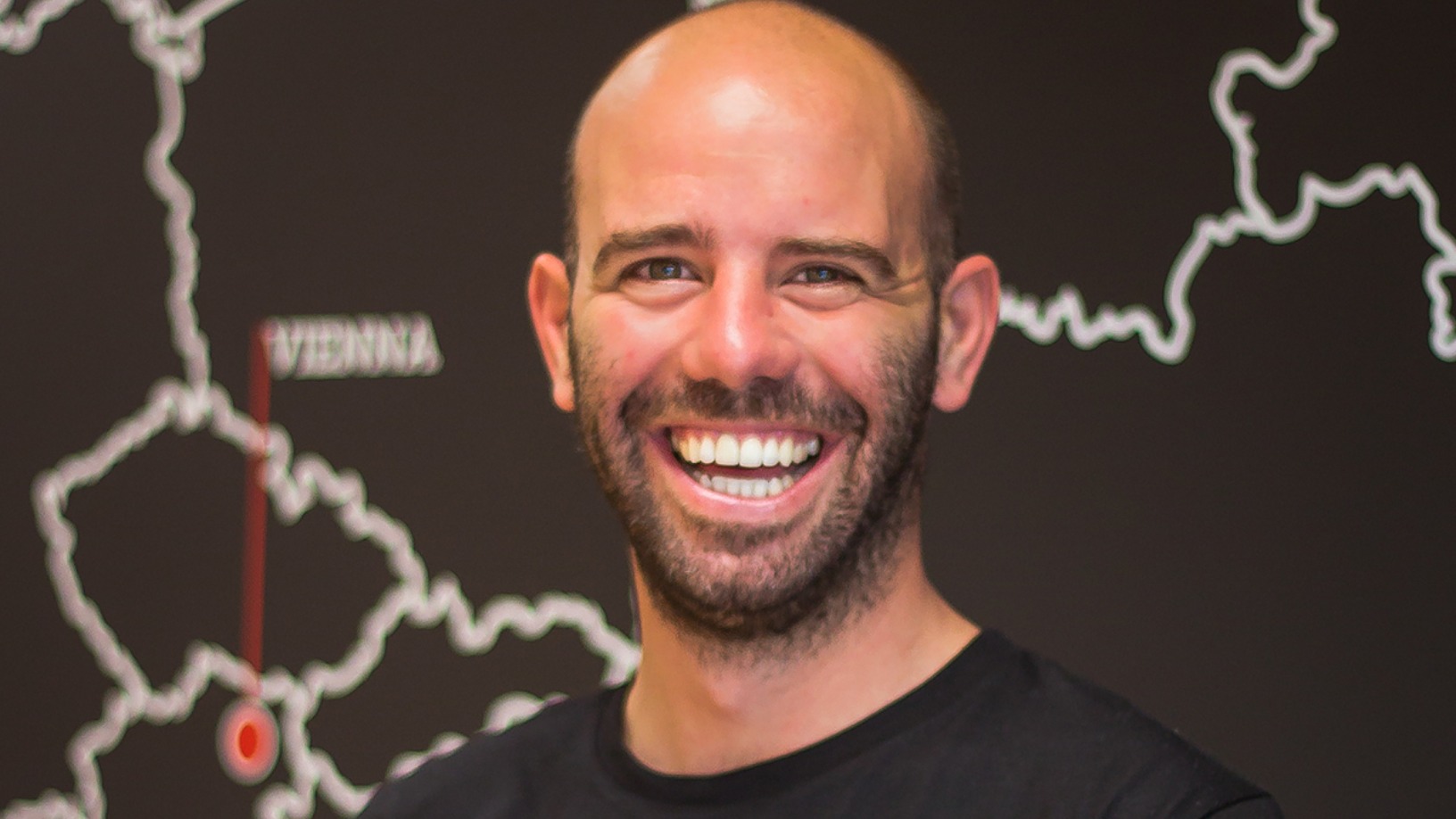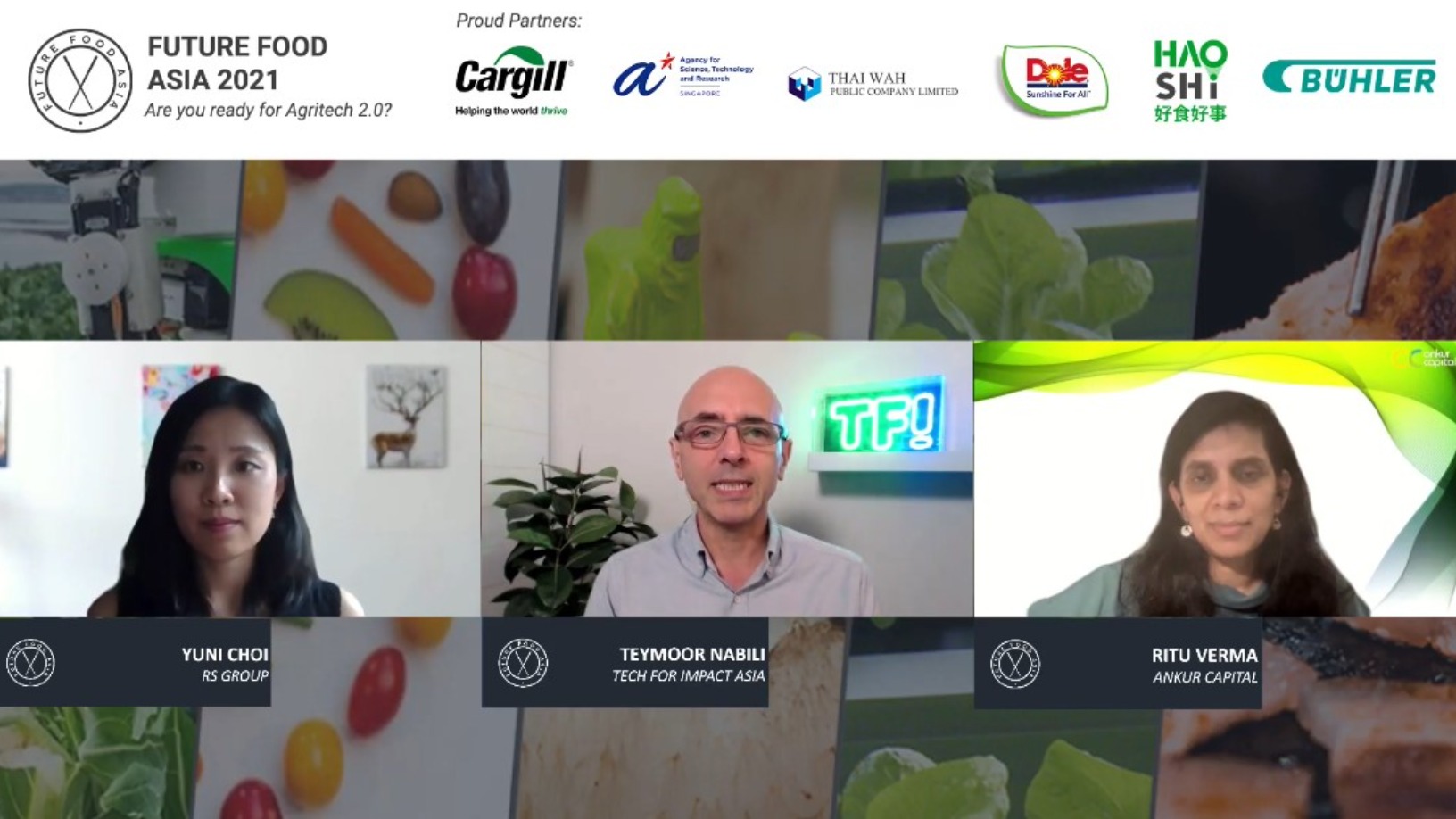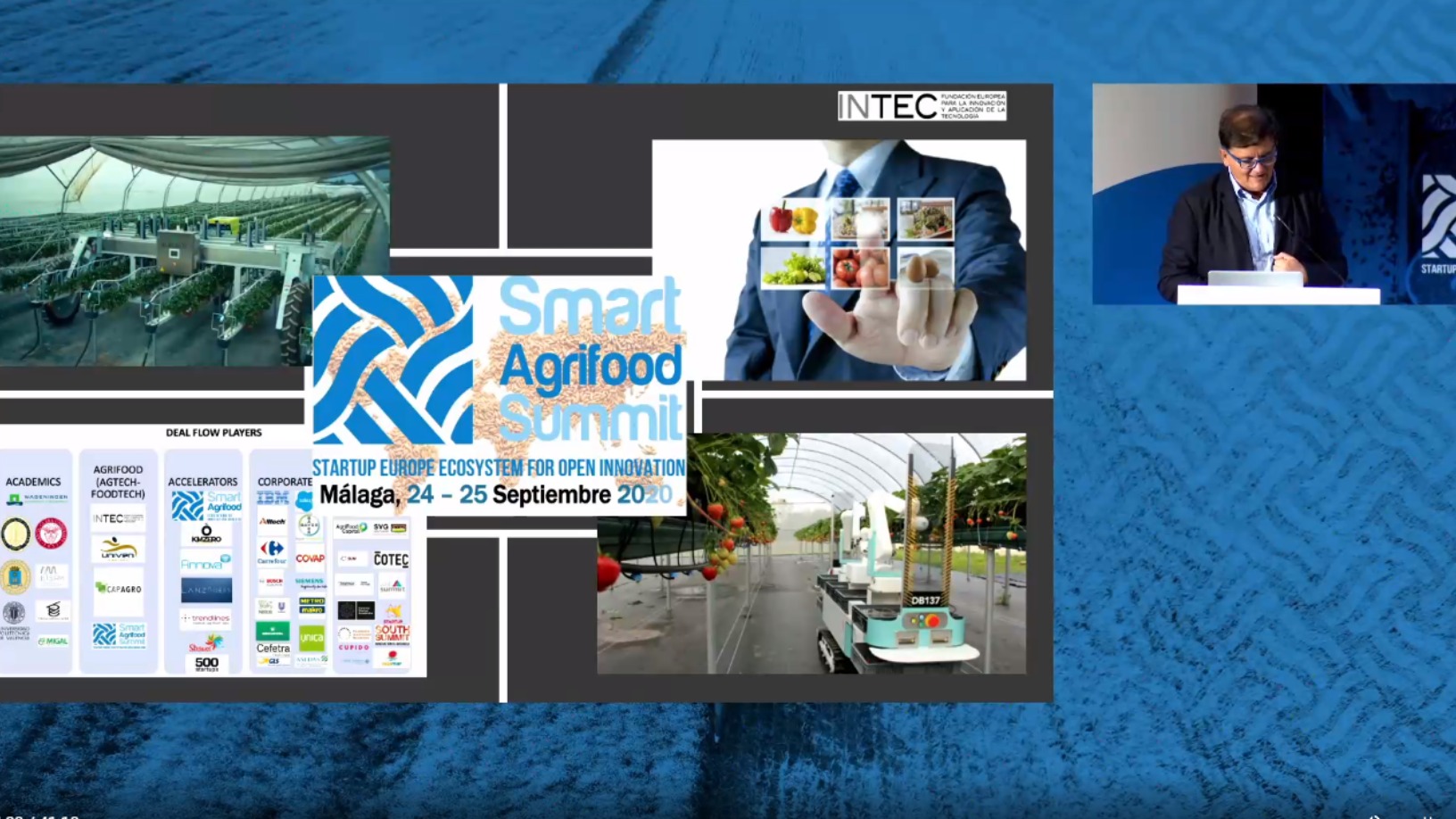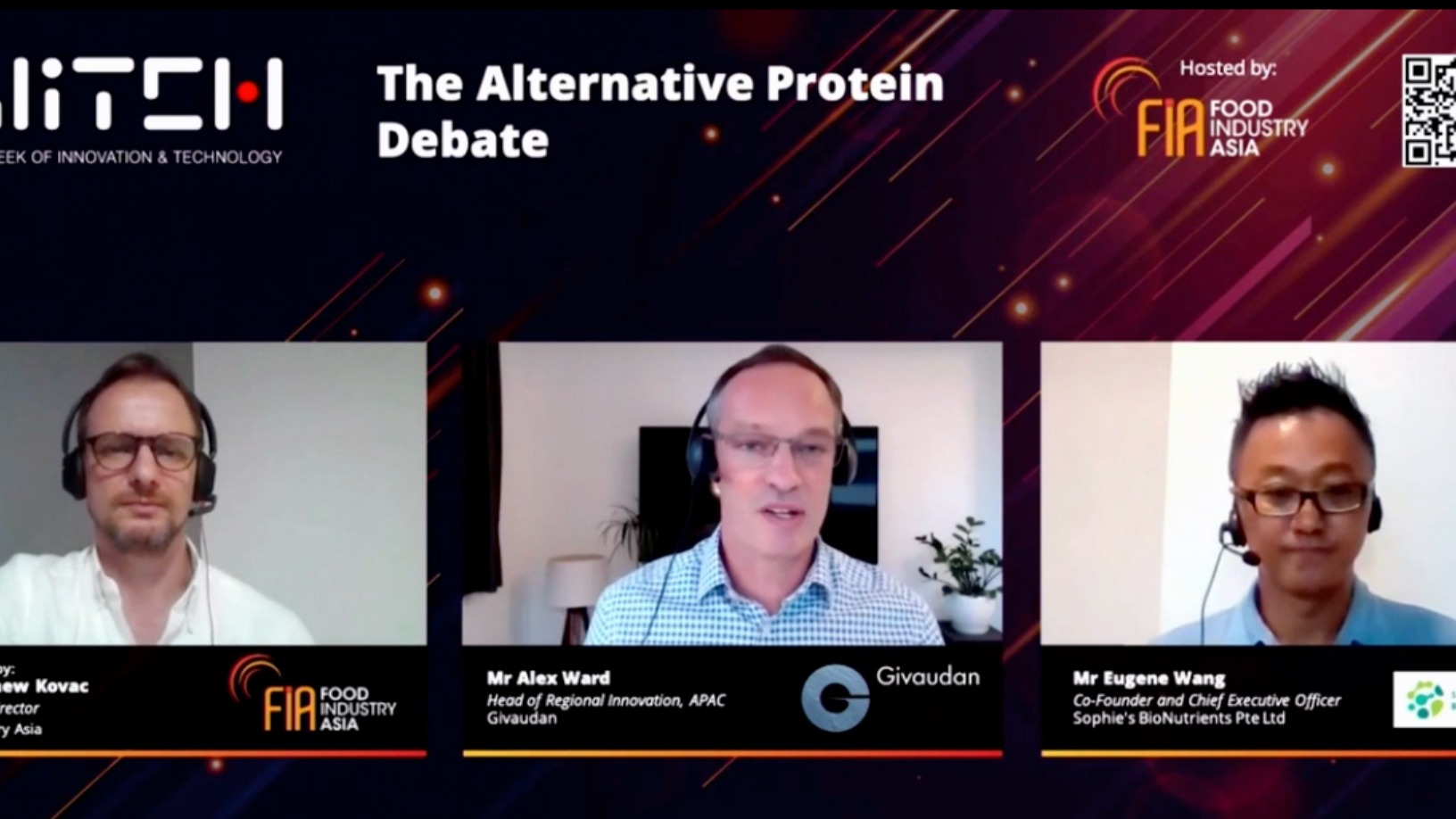Agrifood startups have been in the limelight for the past couple of years, mainly due to growing public awareness of food-related sustainability issues and the rush of cash going to the alt-protein sector. But prior to the boom, Alessio d’Antino, a former business mentor and employee at global drinks giant Diageo, already saw room for growth.
The food sector, he thought, lacked tangible business intelligence and synergy, and so in 2018 he founded Forward Fooding, the world's first collaborative platform for F&B players. Two years later, he launched FoodTech500, a global ranking of the agrifood tech startups, covering more than 2,000 companies from 63 countries.
Silicon Valley-based vertical farmtech Plenty was named overall leader, with another US vertical farming solution, AeroFarms, coming in a close second. Applications for the second edition of FoodTech500 opened this September 15 and will close December 15.
“I realized the bigger impact that could be achieved by connecting entrepreneurs with corporates to accelerate the adoption of emerging technologies that could significantly make a dent in improving our broken food system,” d'Antino told CompassList. That started way back in 2014 and the Italian native was working at Silicon Valley-based Mind the Bridge Foundation, a tech startup accelerator helping EU-based tech companies to expand their businesses in the US.
From there, d'Antino became involved at all levels of the nascent foodtech sector, the same year co-founding the world's first equity-crowdfunding platform for foodtech, CrowdFooding, which later became Forward Fooding. Based in London, he worked to promote the capital as a foodtech hub, broadening access to capital for entrepreneurs and encouraging collaboration. He also was a foodtech mentor in Barcelona and Silicon Valley, at TERRA, one of the first dedicated food and agritech accelerators.
Spotting the next big thing
In 2019, when Beyond Meat went public, the idea for a data-based foodtech ranking system came to him.
“As we wondered who the next big players in the space would be, I realized how disjointed and different our view of the landscape was,” D’Antino said. “Although there were common threads in our assessment, we were basing our views on opinions, not on data. This sparked the thought of creating a set of criteria to unify, rank and score the businesses that would define the future of food.”
Besides ranking a startup's business potential and sustainability by combining relevant metrics, the other premise of the list was to create a global segment overview for the first time.
“Innovation is happening all over the world and is increasingly connected. What happens in the Americas might impact Europe, Asia or Africa and vice versa. Having it be a truly global initiative provides a more accurate picture of where we are in foodtech,” d'Antino said.
He aims to expand FoodTech500 still further, especially in Asia, where it has had less penetration than in Europe and the US due to language barriers and less access to regional networks. While the US remains the leader in the space and the location of most funded companies’ headquarters, “Europe and Asia, especially Singapore, are definitely catching up,” he noted.
In terms of trends, d’Antino sees three main technologies on the up: the use of biotech to create new forms of food such as cellular agriculture, fermentation and soil enrichment via bio fertilizers; the hybridization of alternative protein technologies by startups focusing on more than one area; and enabling technologies for precision farming, including AI.
More than 7,000 companies
The name FoodTech500 and the number of startups ranked was not just an attention-grabbing allusion to the well-known Fortune 500 list of the US' largest corporations.
“To date, we have mapped more than 7,000 startup and scaleup companies globally so we felt that featuring 500 international companies every year would be the bare minimum to do justice to the foodtech startup ecosystem,” d’Antino said.
Startups put themselves forward for participation in the ranking and report their own metrics according to Forward Fooding's criteria. This is because many startups don't publicly disclose all their metrics.
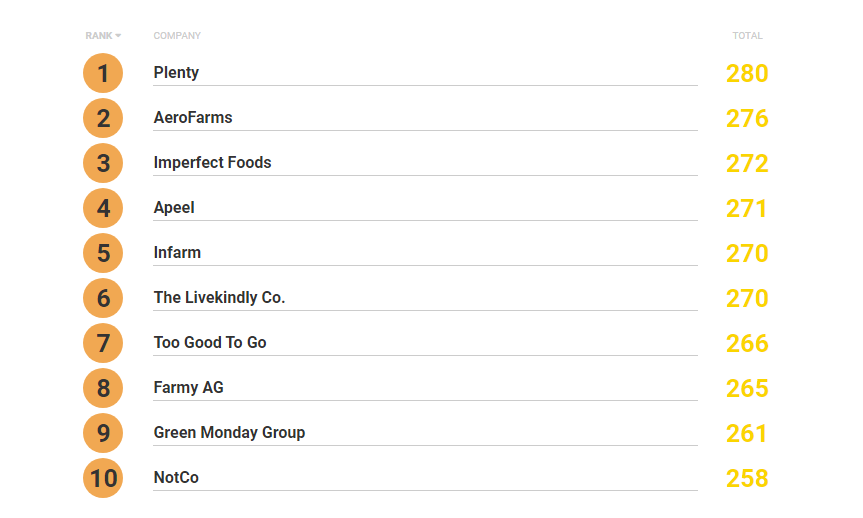
The ranking is calculated by scoring companies in three different categories: business size, which includes data such as revenue, total investment and number of employees; digital footprint, including factors such as the number of social media followers and press coverage; and sustainability, which has traditionally been a difficult area to score.
Sustainability score
Forward Fooding bases its sustainability score on a startup's efforts to achieve one or more of the UN’s Sustainable Development Goals (SDG). “We still don't have a standardized global system when it comes to SDGs, which is why we have worked with sustainability experts from the academic world to develop a bespoke framework to measure sustainability that captures SDG impact,” d'Antino added.
A final score out of 300 is then tallied using Forward Fooding's proprietary algorithms. Positions are then ranked accordingly, with, for example Plenty scoring 279.77 last year, closely followed by AeroFarms at 276.37. It takes several months to compile the list, with Forward Fooding's eleven staff verifying all available data and respecting the confidentiality of each startup’s information.
While Forward Fooding's algorithms process all the metrics received on business size and digital footprint to allocate a score in each area, the more intangible element of sustainability is assessed using data from a self-submitted questionnaire. D'Antino believes that the importance of assessing sustainability in any foodtech ranking cannot be overstated.
“Ultimately if we really want to sustainably feed 9bn people by 2050 while meeting the UN’s Sustainable Development Goals, this sector will need to increase its profile drastically to enable governments and all industry stakeholders around the world to work together to create a more resilient and sustainable food system,” he said.
“Innovation-wise, most of the attention these days is of course focused on the alternative protein space, where a lot of signals are pointing toward an upcoming consolidation of the sector via growing adoption from consumers, friendlier regulation, IPOs, M&As, strategic partnerships and the emergence of more B2B companies working on specific aspects and elements such as scaffolding, growth media, or fat analogs.”
Mapping global trends
In parallel to the FoodTech500, Forward Fooding also compiles a data intelligence platform, the FoodTech Data Navigator, a global index of foodtech investors that currently features more than 11,000 entities representing a source of startup monetization.
“Of the $126bn-plus that have been invested in foodtech in the past ten years, 80% was invested between 2018 and today, and 2021 is set to be a record year, having already reached 2020's level of investment, $29.7bn, with four months to go,” d'Antino said.
Another major initiative of Forward Fooding has been the establishment of foodtech innovation hubs with shared workspaces for segment startups. “Startups in the hubs get advice from the Forward Fooding team and access to our ecosystem of investors and advisors. We aim to help them grow and nurture their networks while we ourselves stay connected to what's happening on the ground. It's mutually beneficial in that sense,” d'Antino said.
London was the first such hub in July 2018 with its innovation center in west London next to the BBC's main offices. Barcelona was selected as the second innovation hub, opening its doors in the city's @22 tech district in November 2020. In addition, Forward Fooding opened a satellite office in Rome to support the development of the Italian foodtech ecosystem.
